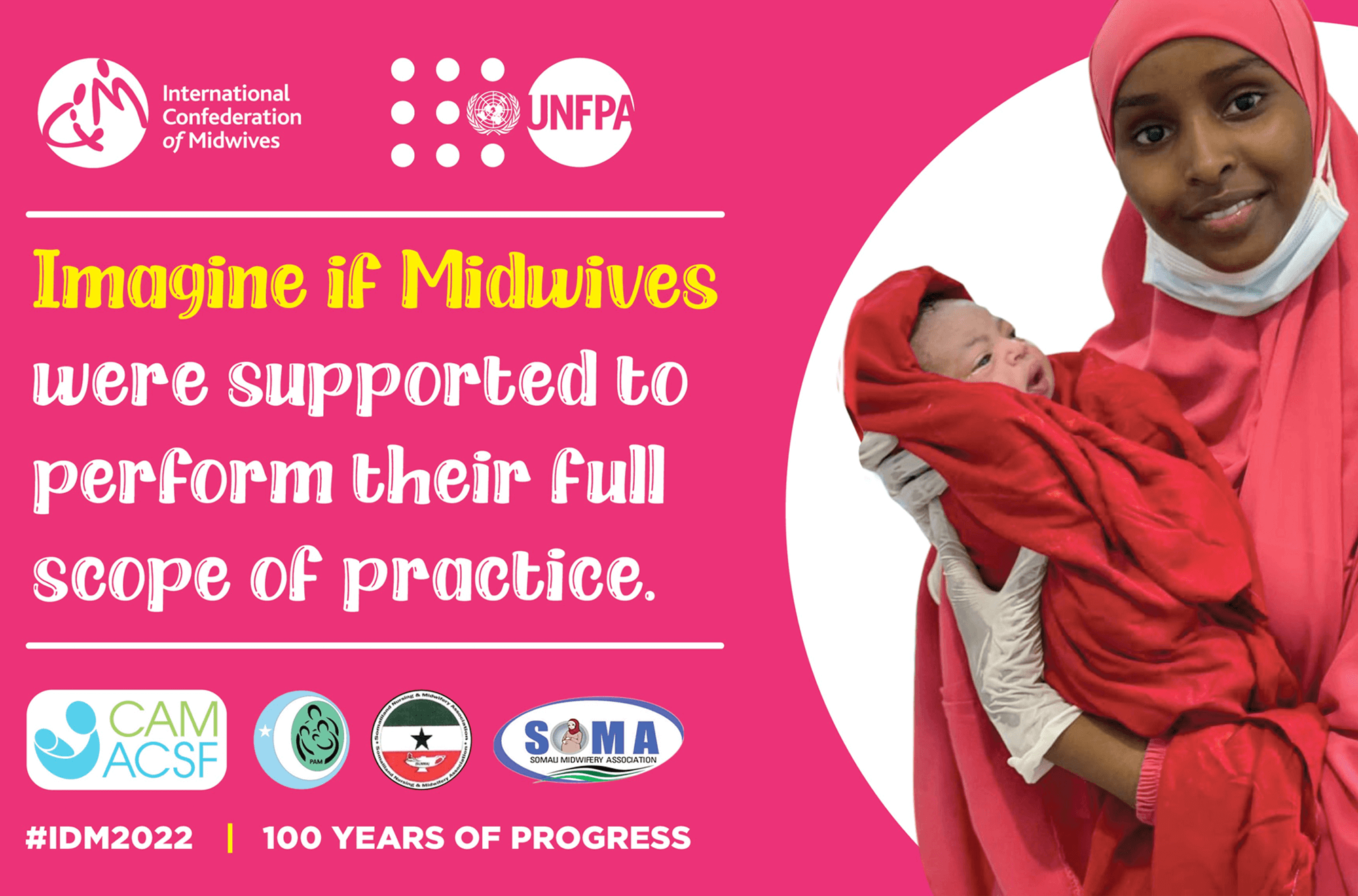
by Rahel Tesfa Maregn, Kirsty Bourret, Jama Ali Egal, Amina Esse, Cristina Mattison, Marie Klingberg-Allvin
BMJ Open, 2023;13:e067315 (Open access)
Abstract
Objectives: To explore midwives’ perspectives in providing sexual reproductive healthcare services in the Somaliland health system.
Methods: An exploratory qualitative design using focus group discussions (n=6) was used. The study was conducted in the capital of Somaliland, Hargeisa, at six maternal and child healthcare centres that provide sexual and reproductive healthcare (SRH) services. Qualified midwives (n=44) who had been working in the maternal and child health centres for a minimum of 1 year were recruited to participate, and only one did not participate due to illness.
Results: The results showed that Somaliland midwives face multiple challenges from a lack of formal arrangements, primarily written guidelines and policies, that explicitly define their role as healthcare professionals, which impact the quality of care they provide. They also reported feeling unsafe when practising according to their professional scope of practice due to challenging cultural norms, customary traditions and Somaliland’s legal system. Finally, the midwives called for support, including training, institutional protection and psychological support, to enhance their ability and fulfil their role in SRH services in Somaliland.
Conclusion: Midwives are essential to the provision of equitable SRH services to women and girls, yet are not fully supported by policies, laws or institutions, often living in fear of the consequences of their behaviours. Our research highlights the importance of understanding the context of Somaliland midwifery in order to better support the development of the midwifery workforce, stronger governance structures and midwifery leadership. Appropriately addressing these challenges faced by midwives can better sustain the profession and help to improve the quality of care provided to women and girls and ultimately enhance their reproductive health outcomes.
Some findings in relation to unwanted pregnancy and post-abortion care:
– There are frequent disruptions in medical equipment and pharmacological supplies and a lack of emergency transport.
– A lack of contraceptives was seen as particularly detrimental, leaving many women exposed to the risk of unintended pregnancy. Furthermore, a lack of supplies meant that the midwives could not manage emergencies, and a lack of transport meant that instead of treating women, they became logisticians, using their cars or collecting funds for taxi fees to escort women to referral hospitals.
– There is a shortage of midwives in Somaliland hospitals. Midwives don’t make enough money to sustain their lives, so a lot of them are working double jobs and shifts.
– Lack of access to training and hands-on supervision impacted their confidence in providing SRHR service to their clients within the scope of their professional duties. For example, not all midwives have been trained in PAC (post-abortion care) or feel equipped to implement life-saving skills when faced with complications from incomplete abortions.
– There are currently no laws either allowing or prohibiting women from consenting to their own care management. However, cultural norms dictate that either a husband or a male family member must consent to the care, even in urgent or life-threatening circumstances such as an incomplete abortion. When a woman comes in with abortion complications, you can’t help her without her husband. You need the husband present because you need him to sign the consent form, so you don’t face any problems afterwards because anything is possible…. Verbal, physical, psychological and legal threats from clients’ family members were common occurrences in their day-to-day practices.
– These discussions were the most prominent regarding the provision of family planning, emergency PAC and supporting survivors of SGBV (sexual and gender-based violence).
– The midwives provided family planning methods if they were available. While most participants mentioned that it is their responsibility to provide PAC, only in one of the FGDs did the participants mention their competence and willingness to provide PAC. We do post-abortion care; we got training[…]we use misoprostol.
– The midwives also created programmes to teach women about their reproductive rights and create women’s health and social awareness within their communities. This awareness strategy was used to empower women and increase their access to SRHR care services.
POSTER: Somaliland Nursing & Midwifery Association https://twitter.com/SLNMA2020



